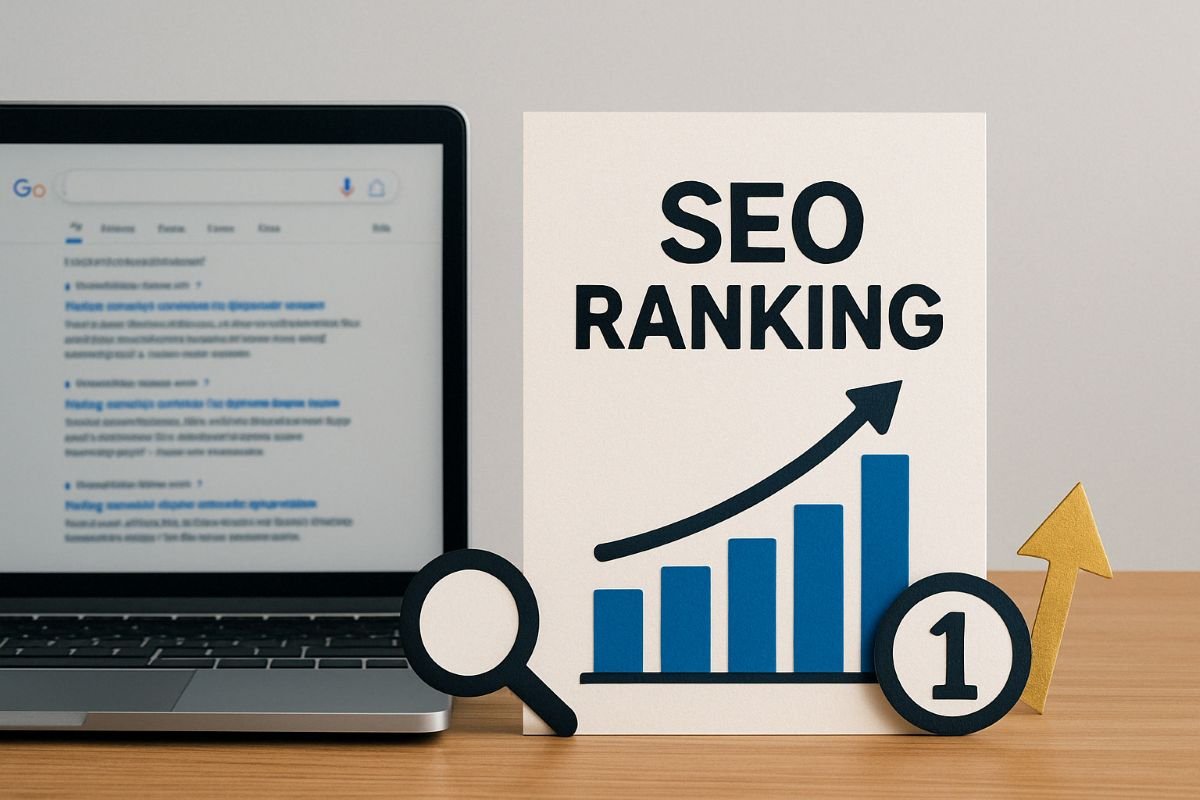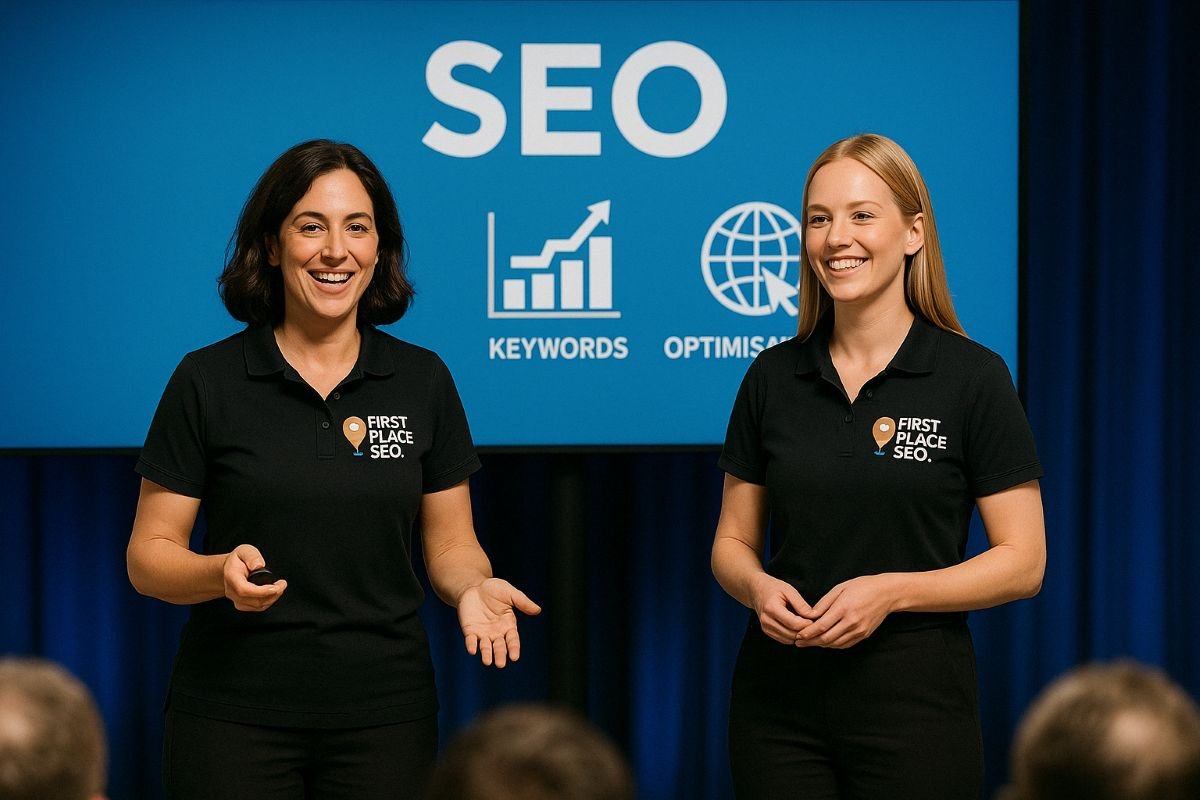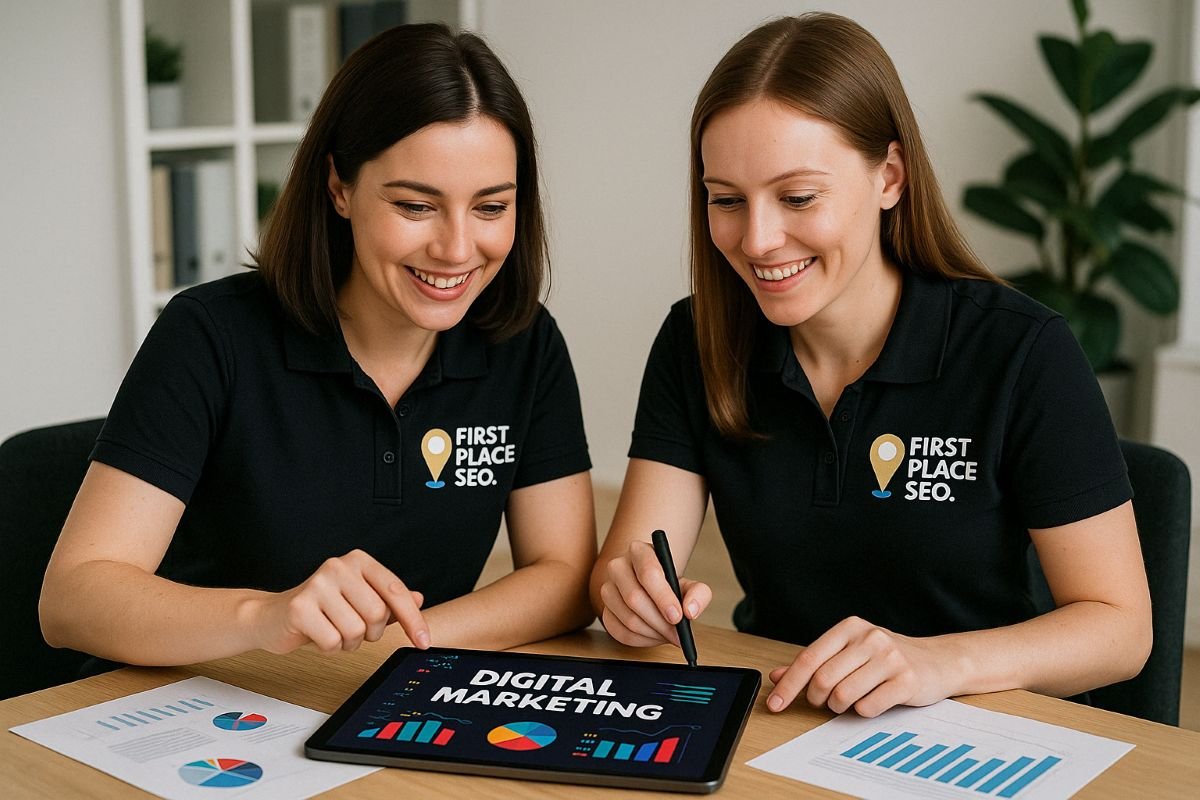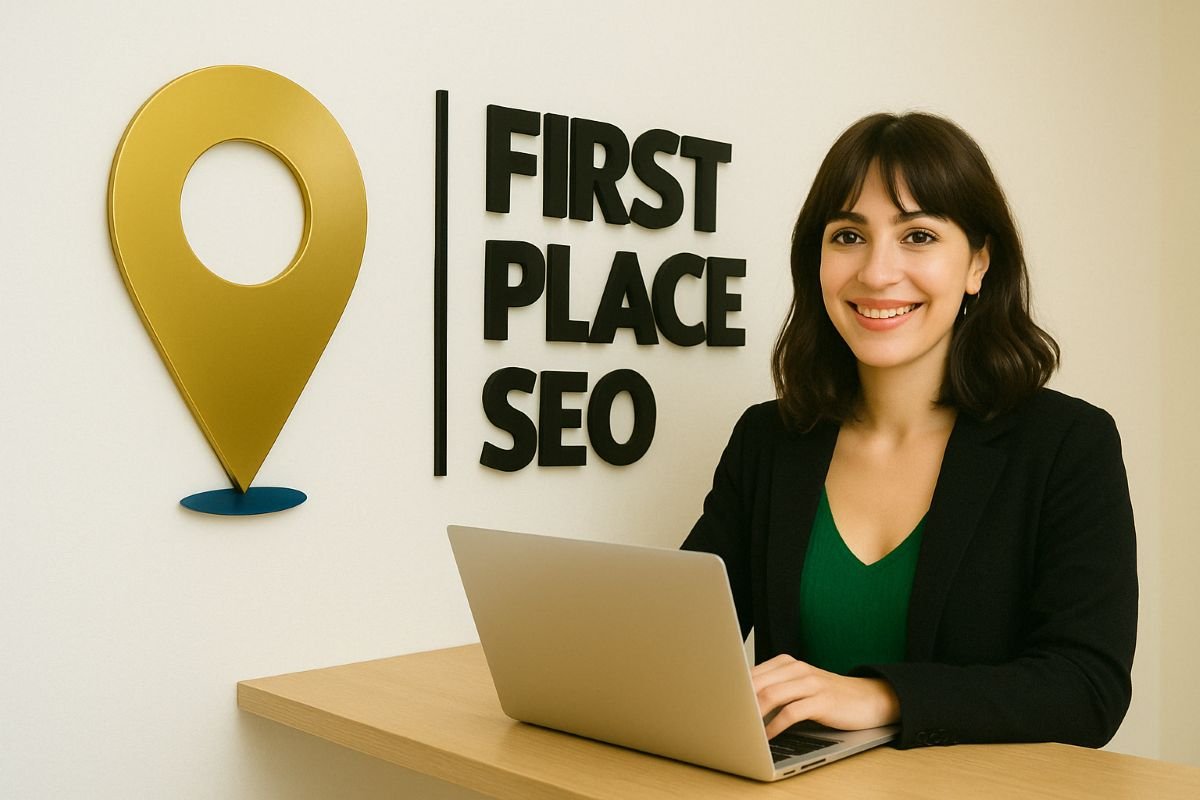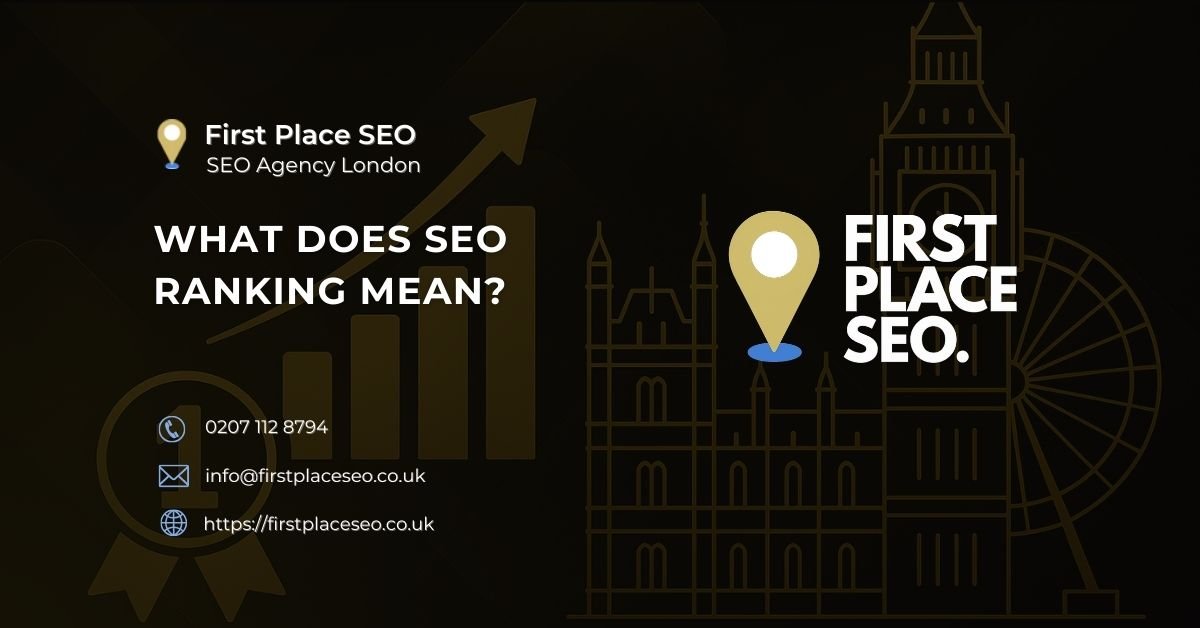What does SEO ranking mean and why is it important?
SEO ranking means the position where a website appears in search engine results for a specific keyword or phrase. A higher ranking increases the chance that users will click on the website. This visibility can lead to more traffic, better engagement, and stronger conversions. The placement of a page within organic search results is determined by how relevant and useful the content is in answering the user’s search query. For businesses, bloggers, and service providers, being seen by the right audience without relying on paid advertising can directly influence success.
Here's What We Have Covered In This Article
What is Search Ranking?
Search ranking refers to the order in which pages are listed in search engine results such as Google or Bing. These listings are based on algorithms that evaluate hundreds of ranking factors including content quality, page speed, backlinks, and mobile usability. Search results are divided into two main categories. The first is organic results which are earned through SEO strategies. The second is paid results which are shown because advertisers have paid for that placement.
What is SEO?
SEO or Search Engine Optimisation is the practice of improving a website so that it performs better in organic search results. It covers a wide range of methods including keyword research, content writing, on page optimisation, technical SEO improvements, and link building. The aim is to make a site more visible to people searching for specific topics, services, or products.
What is SEO Ranking?
SEO ranking indicates how high a page appears in the organic listings of a search engine for a given keyword. For example, if someone searches for “affordable graphic design services London” and your business appears third in the results, your ranking for that search term is third. Since most users click on the top results, being higher in the list can bring in more visitors and enquiries.
Google and other search engines assess a site’s ranking using web crawlers that scan the content and its structure. They examine how well the page matches the intent behind the search. They also look at how quickly it loads and whether other websites link to it. This is why SEO ranking is not a one time achievement but a continuous process that reflects ongoing improvements.
Why does SEO ranking matter?
Appearing near the top of search results can drive more relevant traffic to a website. When people are looking for answers or solutions and your page shows up near the top, you are more likely to earn their trust and attention. Websites that rank well usually benefit from higher click through rates, increased engagement, and better opportunities to convert visitors into customers.
For example, someone searching for “best family solicitors Manchester” is probably ready to take action. If your firm’s page appears first with helpful and accurate content, you are more likely to get the enquiry. That is the value of strong organic search visibility.
Organic versus paid rankings
Organic rankings come from SEO efforts. They are based on relevance and quality, not advertising spend. Paid rankings, also known as search engine marketing or pay per click, show up because someone has bid for that keyword. Once the campaign ends, so does the visibility.
Organic SEO builds long term visibility and tends to generate better engagement and trust. Most users know the difference between ads and unpaid results. They are more likely to trust a site that appears organically because it has earned its place. A strong SEO strategy helps websites maintain visibility even when advertising budgets are reduced or paused.
How do search engines decide rankings?
Search engines use complex algorithms to decide where each page should appear in the results. These algorithms measure a wide range of signals including how relevant the content is, how authoritative the site is, and how easy it is for users to navigate. The goal is to present users with the most helpful answers to their questions.
Google regularly updates its algorithm to improve accuracy and weed out spam or low quality results. This means SEO ranking is not fixed. A page that ranks well today might move down if competitors improve their content or if the search intent changes.
What are the most important SEO ranking factors?
Content quality and search relevance
Google prioritises content that directly answers user questions. Pages that include semantically related terms and NLP keywords tend to perform better. Clear writing, structured layout, and original insight all help search engines recognise the page as valuable.
For example, a page discussing “UK car insurance quotes” should naturally include related terms like vehicle cover, third party insurance, and annual premium. This shows the content is thorough and matches what users are looking for.
Page loading speed
Search engines prefer fast websites. Slow pages frustrate users and often lead to higher bounce rates. Google’s Core Web Vitals measure loading speed, responsiveness, and visual stability. If your site is slow, it will not only frustrate visitors but could also harm your rankings.
To improve speed, compress images, reduce scripts, and use reliable hosting. Tools like Google PageSpeed Insights and Lighthouse help identify what needs fixing.
Mobile usability
More than half of all searches come from mobile devices. If your website is not easy to use on a phone or tablet, it will struggle to rank well. Google now uses mobile first indexing, which means it looks at the mobile version of a site before the desktop version.
A mobile friendly design should adjust to different screen sizes, be easy to navigate with a thumb, and load quickly without heavy elements. You can test your site’s mobile usability using Google’s Mobile Friendly Test.
Backlinks and authority
Backlinks are links from other websites that point to your pages. These links act as recommendations and help search engines measure your authority. The quality of backlinks matters more than the quantity. A few relevant links from respected sites will often do more good than hundreds of weak links.
You can build backlinks by producing useful content, collaborating with partners, or contributing guest posts to respected publications. Internal linking also plays a role. Linking from one relevant page on your site to another helps search engines understand your site’s structure and passes value between pages. For instance, our guide to SEO keyword research explains how to choose the right keywords to target.
Technical SEO structure
Technical SEO includes the setup and coding that helps search engines read your site. It includes things like structured data, schema markup, clear use of H1 and H2 tags, robots.txt files, and XML sitemaps. A technically sound website makes it easier for search engines to crawl and index your pages.
Avoid errors such as duplicate content, broken links, or incorrect redirects. Regular audits can help fix these issues and maintain strong SEO health.
Site age and domain trust
Websites that have been active for a long time and consistently publish quality content tend to be seen as more trustworthy. This does not mean new sites cannot rank. However, older domains often have the advantage of a stronger backlink profile and a history of positive engagement.
Some SEO tools estimate this with a score called Domain Authority. Although it is not used by Google directly, it can provide a helpful benchmark for how competitive a site might be in search.
User interaction and site experience
Search engines also consider how users behave on your site. Do they stay and read the content? Do they visit more than one page? A positive user experience includes easy navigation, helpful internal links, and clear structure. All of these encourage users to stay longer and find what they need.
Pages that perform well often have a friendly tone, real answers to common questions, and content that builds trust. If users feel they have found what they were looking for, they are more likely to stay or come back.
Need Help With Your SEO Rankings?
Common SEO ranking mistakes to avoid
Avoid keyword stuffing, where the same phrase is repeated unnaturally. This used to work but now harms rankings. Also avoid thin content, which does not provide enough useful information. Broken links, slow loading times, and missing metadata are other common issues that weaken SEO.
Check your site regularly for technical problems and keep content fresh. Google rewards websites that are well maintained and actively updated.
SEO ranking and local SEO
If your business serves a specific area, local SEO helps you get found by nearby customers. This includes optimising your Google Business Profile, getting reviews, and making sure your address and contact details are consistent across directories.
Include location specific keywords on your site, such as “emergency plumbing services Glasgow,” and create pages for different service areas. This improves visibility in local search and on map listings.
How First Place SEO can help
At First Place SEO, we help businesses improve their rankings through detailed audits, keyword planning, technical fixes, and content strategies that work. Whether you need help with your whole website or just want to boost one area, we tailor our SEO support to fit your goals.
We also provide monthly reports so you can see what’s working. Our approach is clear, practical, and focused on real results. To learn more, visit our main SEO services page.
Summary
SEO ranking matters because it determines how easily people can find your website. The better your ranking, the more chances you have to earn clicks, build trust, and generate enquiries. Search engines want to show the best content for each query, so the more helpful, fast, and relevant your site is, the better you will perform.
With a mix of smart keyword usage, fast performance, regular updates, and a clear structure, your pages can rise through the rankings and stay there.
FAQs
1. How long does SEO take to work?
It usually takes a few months to see results from SEO. You might see small changes sooner, but big improvements need regular updates and time.
2. Can I rank without backlinks?
You can rank for low competition keywords without backlinks, but to rank for more competitive terms, backlinks from trusted sites really help.
3. Do I need to update old content?
Yes. Keeping your content accurate and relevant helps maintain rankings. Update statistics, fix broken links, and improve clarity over time.
4. Is SEO better than pay per click advertising?
SEO has longer lasting results and can cost less over time. Pay per click is useful for quick visibility but stops as soon as you stop paying.
5. What is a good SEO ranking to aim for?
Getting on the first page of Google is a good target. Most clicks go to the top three results, so aim as high as possible for your main keywords.

